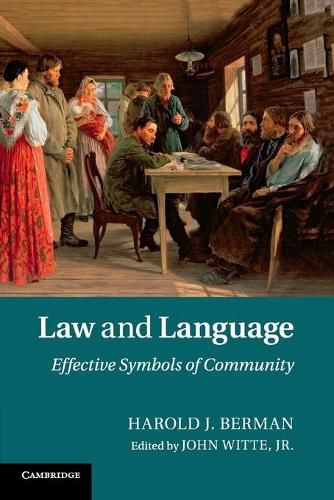Readings Newsletter
Become a Readings Member to make your shopping experience even easier.
Sign in or sign up for free!
You’re not far away from qualifying for FREE standard shipping within Australia
You’ve qualified for FREE standard shipping within Australia
The cart is loading…






Completed in 1964, Harold J. Berman’s long-lost tract shows how properly negotiated, translated and formalised legal language is essential to fostering peace and understanding within local and international communities. Exemplifying interdisciplinary and comparative legal scholarship long before they were fashionable, it is a fascinating prequel to Berman’s monumental Law and Revolution series. It also anticipates many of the main themes of the modern movements of law, language and ethics. In his Introduction, John Witte, Jr, a student and colleague of Berman, contextualises the text within the development of Berman’s legal thought and in the evolution of interdisciplinary legal studies. He has also pieced together some of the missing sections from Berman’s other early writings and provided notes and critical apparatus throughout. An Afterword by Tibor Varady, another student and colleague of Berman, illustrates via modern cases the wisdom and utility of Berman’s theories of law, language and community.
$9.00 standard shipping within Australia
FREE standard shipping within Australia for orders over $100.00
Express & International shipping calculated at checkout
Completed in 1964, Harold J. Berman’s long-lost tract shows how properly negotiated, translated and formalised legal language is essential to fostering peace and understanding within local and international communities. Exemplifying interdisciplinary and comparative legal scholarship long before they were fashionable, it is a fascinating prequel to Berman’s monumental Law and Revolution series. It also anticipates many of the main themes of the modern movements of law, language and ethics. In his Introduction, John Witte, Jr, a student and colleague of Berman, contextualises the text within the development of Berman’s legal thought and in the evolution of interdisciplinary legal studies. He has also pieced together some of the missing sections from Berman’s other early writings and provided notes and critical apparatus throughout. An Afterword by Tibor Varady, another student and colleague of Berman, illustrates via modern cases the wisdom and utility of Berman’s theories of law, language and community.